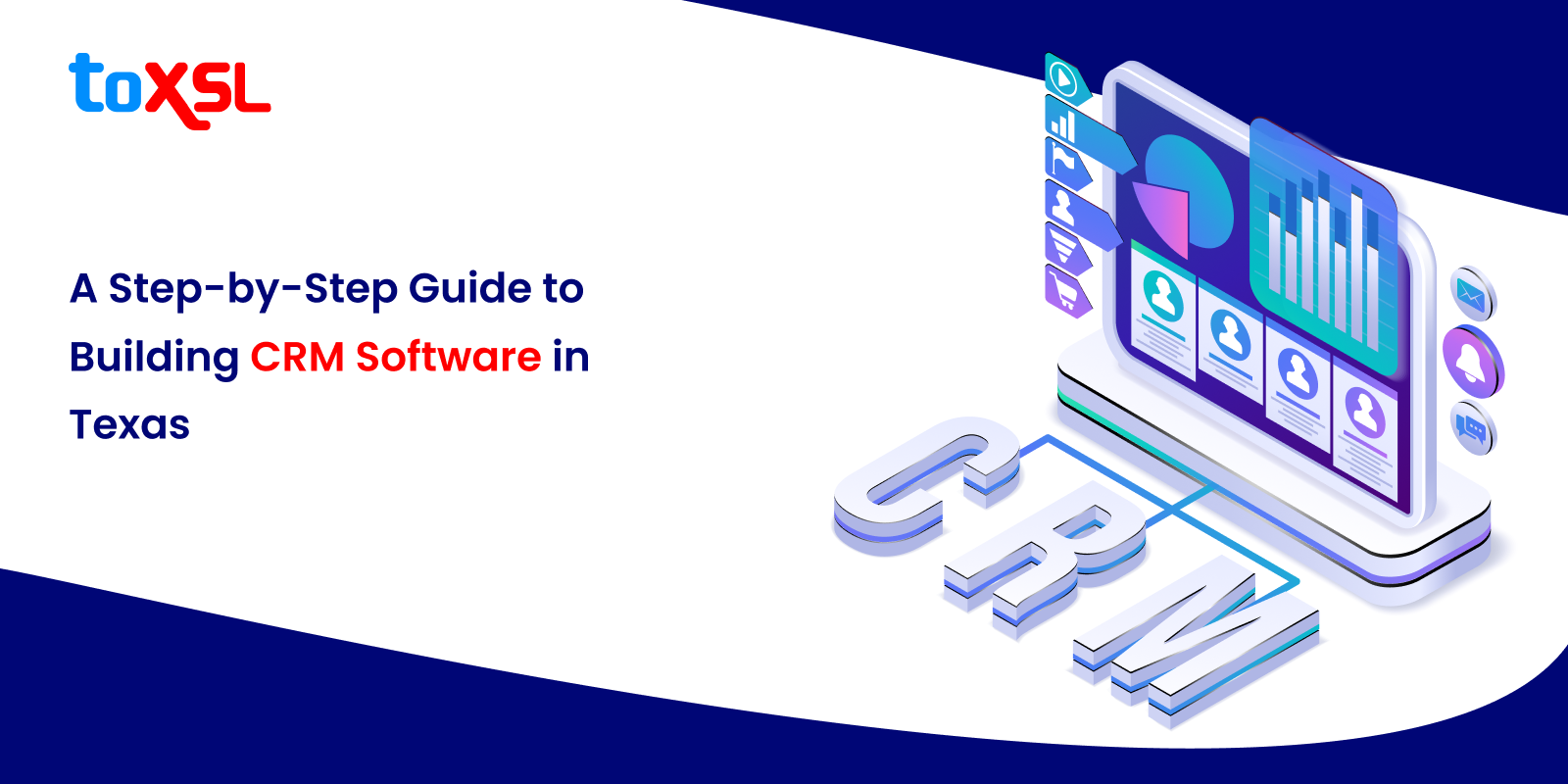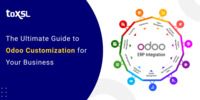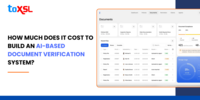- Nov 18, 2025
- ERP/CRM Applications
- 1851
Share this post on:

A study found that 45% of businesses have reported improvement in sales and revenue after incorporating CRM Software in their business. 65% of users started using CRM in the first five years of their business and 47% of CRM users said that CRM system have impacted their businesses positively and have increased customer satisfaction.
According to Statista, the global CRM market is projected to generate $57 billion in revenue by 2025. This data tells us the importance of CRM software. Customer Relationship Management (CRM) software is helping companies manage their interactions with customers, work more easily, and generate more revenue.
Texas has a strong economy that makes Texas a good place for companies to use CRM software to make their operations efficient and effective. Whether you are a new business in Austin, a factory in Houston, or a shop in Dallas, having your own CRM software can help you succeed.
However, developing CRM software in Texas can be challenging. So, how do businesses develop custom CRM software that will fulfill their business needs? Well, let us dive deeper into how your businesses can develop custom CRM software in Texas.
How to Develop a CRM Software in Texas
Developing CRM software without the help of a custom CRM software development company in Texas can be challenging. With that, remember that there is no one-size-fits-all CRM. So, following a tailored approach ensures that software meets the specific requirements. Hence, it is advised to hire a top CRM software development provider for your business:
Know Your Requirements: First, look carefully at how your business works, how you talk to customers, and what problems you have. Decide what you want your CRM to do, maybe manage leads better, automate marketing, improve customer support, or get better sales reports.
Market Research: It’s important to understand what other businesses in Texas are doing. Check out the CRM systems used by companies like yours. See what they do well, what they don’t, how much they cost, and what features they offer. This will help you find what’s missing and how you can make your CRM better for Texas businesses, like following local rules or working with local payment systems.
Intuitive UI/UX: Make sure your customer relationship management software is simple and easy to use. Many Texas businesses have sales teams working outside the office, so your CRM should work well on phones and tablets. Let users customize their dashboards so they can see the most important info quickly.
Core Functionalities: Start building key parts like managing contacts, tracking leads and deals, showing sales progress, managing tasks and calendars, and keeping records of communications. Add automation like email campaigns, reminders, and workflow triggers to save time. If you work in Texas industries like oil and gas or healthcare, think about adding special features for those fields or to help follow rules.
Security Measures: Protecting customer data is very important. Use encryption, control who can access what, and do regular security checks. Texas businesses must follow local laws like the Texas Privacy Protection Act, and sometimes federal laws like GDPR or CCPA. Keeping data safe and being clear about privacy builds trust and protects your business.
Deploy and Provide Training: Put your customer relationship management system live on the platform you choose. Make sure it can grow with your business and stays working well. Give your staff good training and easy guides so they can learn quickly. If your teams are spread out across Texas, online training and ongoing support can help everyone get comfortable with the new system.
Maintain, Monitor, and Update: After launch, watch how the CRM is working, listen to user feedback, and look for new business needs. Plan regular updates, add new features, and fix any security issues. A CRM should grow and change as your Texas business grows and the market changes.
Features of CRM Software in Texas
The advantage of developing custom CRM software is that businesses can add as many as features they want. They have the authority to remove or add features anytime they want. In this section, let us take you through the features that you add to your customer management system.
Centralized Customer Database: The best CRM for small business keeps all customer information in one place — like phone numbers, what they bought, past chats, preferences, and support requests. This helps your Texas sales and support teams give personal and quick help.
Sales Pipelines and Lead Management: A sales pipeline shows where each lead is, from first contact to closing the sale. Features like scoring leads, assigning tasks, and automatic follow-ups make sure no opportunity is missed. This is very important in Texas’s busy markets.
Customer Interaction Tracking: Every call, email, or meeting is saved so your team knows the full story. This helps them talk to customers in a way that fits their needs and builds better relationships.
Reporting and Analytics: Live dashboards and custom reports show how sales are doing, what customers want, and how marketing is working. Using this data helps Texas businesses make smart decisions and stay flexible.
Integration with Third-party Tools: The CRM can connect with other business apps. For example, linking with accounting software helps track bills and payments, and calendar apps make scheduling easier.
Data Security and Privacy: The CRM uses strong protection like encryption and two-step login to keep customer data safe. It also helps follow Texas and US privacy laws by managing customer permissions.
Custom Dashboards: Users can make their dashboards and automate tasks that fit their jobs. This makes the CRM easier to use and matches how your business works.
Customer Support: A built-in support system tracks customer problems with tickets, offers helpful guides, and sends automatic replies. This improves customer service and keeps customers happy.
Benefits of CRM Software for Business in Texas
Investing in CRM software helps businesses unlock growth and efficiency that impacts the business’s bottom line and customer relationships:
Enhanced Customer Relationship: A CRM helps you see everything about your customers. This lets you talk to them in a personal way and help them quickly. When customers feel special, they stay loyal. This is very important in Texas, where keeping customers coming back is key.
Improved ROI: With good customer information, you can send the right message to the right people. This makes your marketing more effective and saves money. Texas businesses can also change their messages to fit local tastes and groups.
Enhanced Collaboration: A CRM keeps all customer info in one place and links different work steps. This cuts down mistakes and saves time. Sales, marketing, and support teams can work together smoothly, making the business run better.
Smart Decisions: Real-time reports help managers make smart choices. They can quickly react to market changes and find new ways to grow the business.
Cost to Build a CRM Software in Texas, USA
The cost to develop a custom CRM software in Texas depends on business requirements. Every business is unique and needs unique custom CRM software. In general, the cost to develop CRM software in Texas, USA ranges somewhere between $10,000 to $75,000. However, this cost is not fixed and can change as the business changes. There are numerous factors that can impact the cost of CRM software in USA. A few of them are as follows:
Project Complexity: The cost depends on how many features your CRM has and how it connects with other tools. A simple CRM that helps you keep track of contacts and sales will cost less. But if you want a smart system with things like AI, marketing tools, and many ways to talk to customers, it will cost more.
Development Approach: You can choose to build your CRM from the beginning, change an existing open-source CRM, or use easy tools that don’t need much coding. Building from scratch gives you more control but costs more at first.
Team Collaboration and Location: Hiring developers in Texas or local companies might be different than hiring people from other countries. Texas has many skilled tech workers, especially in cities like Austin and Dallas, and their prices are fair.
Development Timeline: The longer the project takes, the more it costs. Good planning and clear ideas about what you want can help finish the project faster and save money.
Conclusion:
In conclusion, developing your CRM software in Texas is a great way to meet the needs of your business and the local market. So, if you follow a clear plan, add useful features, and understand the costs, your business can develop a CRM system that helps you work better, build stronger customer relationships, and grow over time.
Texas has various businesses, and strong competition, and having a custom CRM can help you do more than just survive, it helps succeed. Whether you have a business looking to organize customer information or a big company that wants to automate tasks, developing your own CRM software is a smart choice that will help you in the long run.
So, if you are a business looking to develop the best CRM Software for your business ToXSL Technologies is here to help. We are a leading CRM software development company who have been helping business improve their operation and enhance their revenue. Contact us today to learn more











